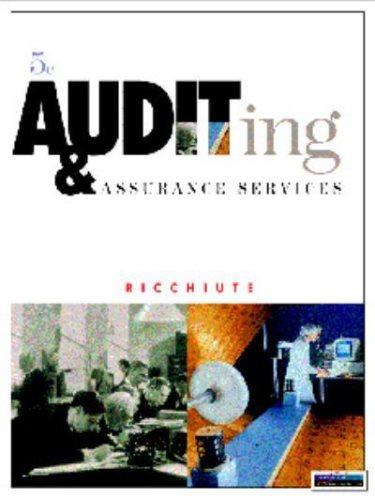The limitations on a practitioner's professional responsibilities when associated with unaudited financial statements are often misunderstood, although
Question:
The limitations on a practitioner's professional responsibilities when associated with unaudited financial statements are often misunderstood, although the risk of misunderstanding can be reduced substantially by carefully following professional pronouncements and by taking other appropriate measures.
Required:
The following are situations a practitioner may encounter in his or her association with unaudited financial statements. Briefly discuss the extent of the practitioner's responsibilities and, if appropriate, the actions he or she should take to minimize any misunderstandings.
1. A group of investors who own a farm managed by an independent agent engage an independent accountant to prepare quarterly unaudited financial statements.
The accountant prepares the financial statements from information supplied by the independent agent. Subsequently, the investors find that the statements are inaccurate because the agent embezzled funds. The investors refuse to pay the accountant's fee and blame the accountant for allowing the embezzlement to go undetected, contending that representations from the independent agent should not have been relied on.
2. In comparing the trial balance with the general ledger, an accountant finds an account labeled "Audit Fees" in which the client has accumulated the accountant's quarterly billings for accounting services, including the preparation of quarterly unaudited financial statements.
3. To determine appropriate account classification, an accountant reviewed a number of the client's invoices. The accountant noted in the working papers that some invoices were missing, but felt they did not affect the unaudited financial statements, and thus did nothing further The client subsequently discovered that invoices were missing and contended that the accountant should not have ignored the missing invoices when preparing the financial statements, but had a responsibility to at least inform the client that they were missing.
4. An accountant is engaged to review the financial statements prepared by a client's controller. During the review, the accountant learns of several items that by generally accepted accounting principles would require adjustment to the statements and notes. The controller agrees to make the recommended adjustments but refuses to add the notes because the statements are unaudited.
Step by Step Answer:






